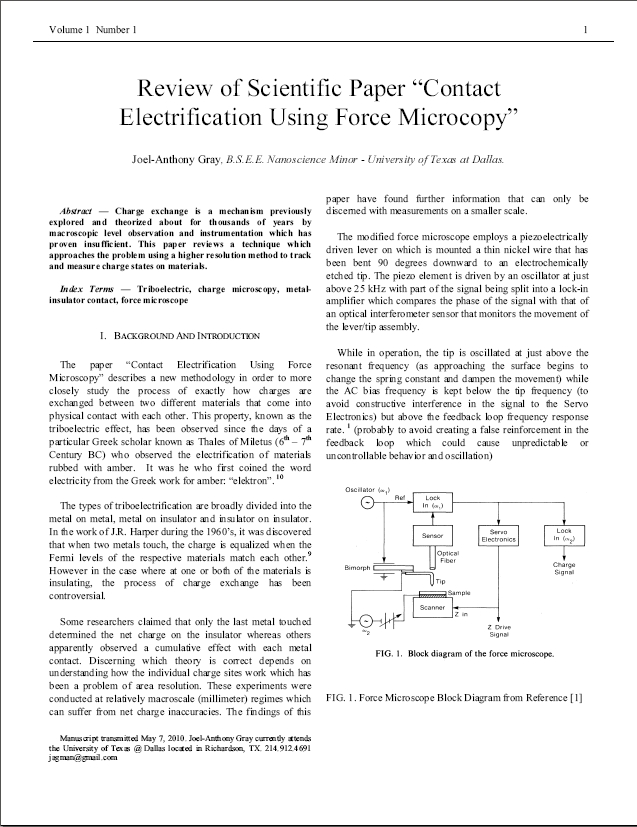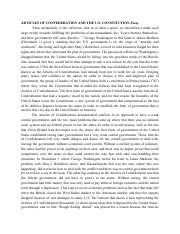Draft a template for your review. Start with a summary of the review article that reflects what you understand of the article. This is a good start as it helps sync your thoughts with the author, and also helps the journal Follow it up with a listing of minor or major issues with the review article 12/1/ · Don’t dwell on previous review articles that have been written on your topic (this quickly can become a black hole that sucks up time and gives you unnecessary insecurity about the contribution you’re trying to make to the field), but do familiarize yourself with their content. Look for areas that have not yet been thoroughly reviewed or areas for which you think you have a fresh take on old data Choose the topic and outline the organization of the review Once you start reading, there will be a temptation to include every piece of information that was ever published. Obviously this isn’t possible. So, define your scope from the onset
How to Write a Scientific Review Article
Nowadays, there is a huge demand for scientific literature reviews as they are especially appreciated by scholars or researchers when designing their research proposals. While finding information is less of a problem to them, discerning which paper or publication has enough quality has become one of the biggest issues. This way, they are priceless tools not only for those who are starting their research, but also for all those interested in recent publications.
To be useful, literature reviews must be written in a professional way with a clear structure. The amount of work needed to write a scientific literature review must be considered before starting one since the tasks required can overwhelm many if the working method is not the best.
Writing a scientific review implies both researching for relevant academic content and writinghowever, writing without having a clear objective is a common mistake.
Therefore, we suggest that you divide your path into three steps. Think about your target and narrow down your topic, how to write a good scientific review article. Remember that researchers usually deal with really specific fields of study. It is time to be a critic and locate only pertinent publications.
While researching for content consider publications that were written 3 years ago at the most. Write notes and summarize the content of each paper as that will help you in the next step.
Check some literature review examples to decide how to start writing a good literature review. When your goals and structure are defined, begin writing without forgetting your target at any moment. Related: Conducting a literature survey? Wish to learn more about scientific misconduct?
Check out this resourceful infographic. Here you have a to-do list to help you write your review :. Scholars and researchers are usually the best candidates to write scientific literature reviews, not only because they are experts in a certain field, but also because they know the exigencies and needs that researchers have while writing research proposals or looking for information among thousands of academic papers. Therefore, considering how to write a good scientific review article experience as a researcher can help you understand how to write a scientific literature review.
Have you faced challenges while drafting your first literature review? How do you think can these tips help you in acing your next literature review? Let us know in the comments section below! Subscribe for free to get unrestricted access to all our resources on research writing and academic publishing including:.
We hate spam too, how to write a good scientific review article. We promise to protect your privacy and never spam you. Literature review tips. Last updated Mar 25, Show Comments 2.
How to write an review article ? Definition, structure and step wise Tutorials
, time: 14:17Getting Started - Publishing in the Sciences - Research Guides at University of Michigan Library

1/12/ · Your review should follow the following structure: Abstract Write this last; A summary of your main thesis and the studies you examine in your review; Introduction Introduce your topic; Outline what you will discuss throughout the review; Frame the paper with your thesis 11/4/ · Here you have a to-do list to help you write your review: A scientific literature review usually includes a title, abstract, index, introduction, corpus, bibliography, and appendices (if needed). Present the problem clearly. Mention the paper’s methodology, 4/6/ · Choose keywords carefully, choose a good database such as Web of Science, choose the time-frame that your review will cover, and read everything that is a

No comments:
Post a Comment